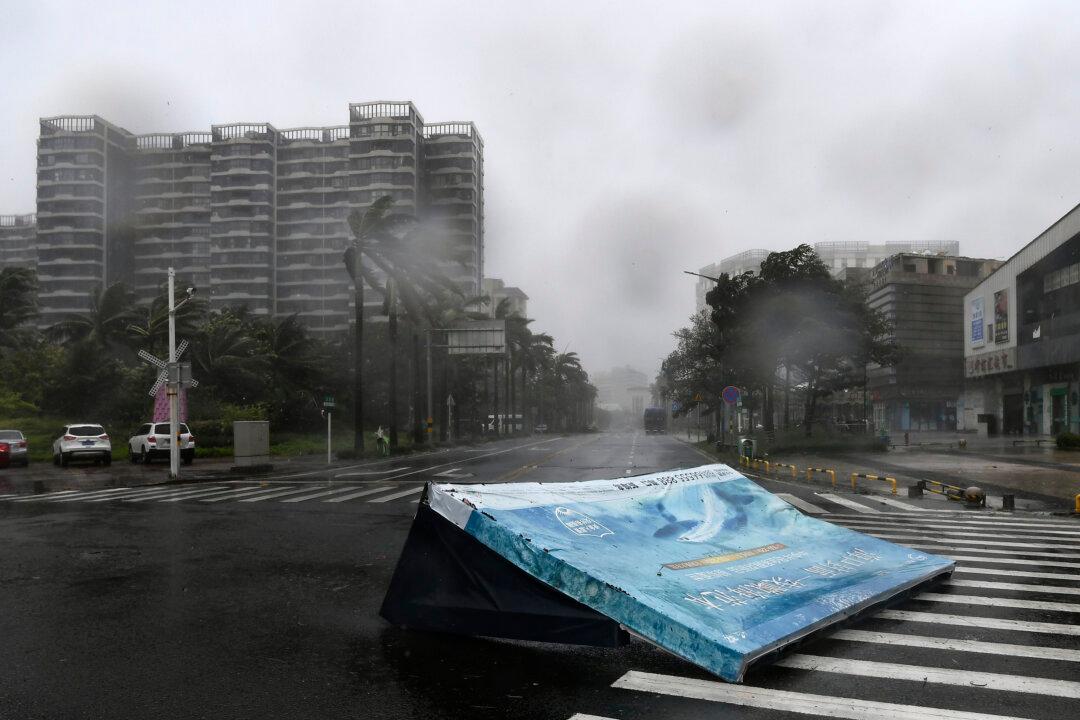HONG KONG—A powerful typhoon killed at least three people and left at least 92 injured in the southern Chinese island of Hainan, authorities said Saturday, with heavy rains and winds causing power outages in over 800,000 households.
The actual number of casualties from such events may be much higher. The actual number of casualties is difficult to verify, as the Chinese regime routinely suppresses or alters information.





